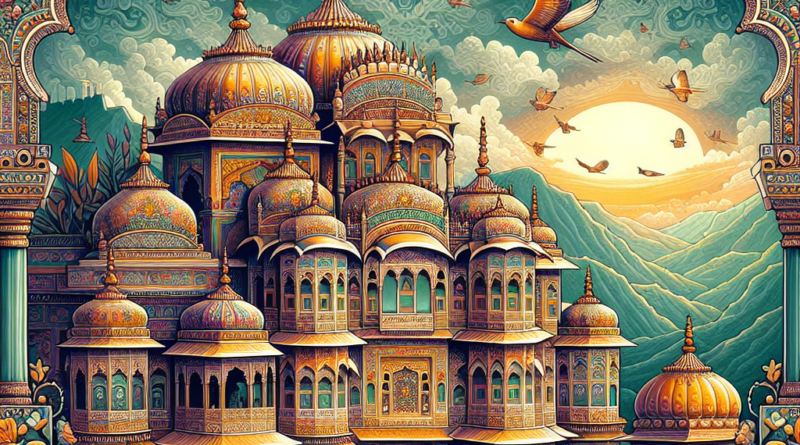Preserving Rajputana heritage: A timeless legacy
Rajputana Heritage: A Testament to Hindu and Indian Cultural Significance
The land of Rajputana, also known as Rajasthan, holds a special place in the heart of India, with its rich history and vibrant culture deeply intertwined with Hindu traditions. The term “Rajput” is derived from the Sanskrit word “raja-putra,” meaning “son of a king,” signifying the noble lineage of warriors who ruled over this region for centuries. The legacy of the Rajputs is a testament to the valor, honor, and resilience that are deeply ingrained in Hindu and Indian cultural ethos.
Historical Context:
The history of Rajputana dates back to ancient times, with legends and folklore narrating tales of brave Rajput warriors who defended their kingdoms against invaders and upheld dharma (righteousness) and loyalty above all else. The Rajputs emerged as a formidable force in the medieval period, establishing powerful kingdoms such as Mewar, Marwar, Amber, and Jaipur. The iconic forts and palaces of Rajasthan, such as Chittorgarh, Mehrangarh, and Amber Fort, stand as a testament to the architectural marvels and strategic prowess of the Rajput rulers.
The Rajputs were staunch defenders of Hinduism, with a deep-rooted reverence for their faith and traditions. The valor of Rajput warriors like Rana Pratap Singh, Maharana Kumbha, and Rani Padmini is legendary, symbolizing the spirit of sacrifice and courage that is celebrated in Hindu mythology and epics. The Rajput chivalry and code of honor, epitomized by the concept of “Rajputana,” embody the ideals of bravery, loyalty, and selflessness that are revered in Indian culture.
Contemporary Relevance:
In modern times, the legacy of Rajputana continues to inspire and captivate people from all walks of life. The vibrant culture of Rajasthan, with its colorful festivals, traditional music and dance forms, and exquisite arts and crafts, reflects the enduring influence of the Rajput heritage. The state is renowned for its folk music and dance forms like Ghoomar, Kalbelia, and Kathputli, which have transcended regional boundaries to become emblematic of Indian cultural identity.
The architectural marvels of Rajasthan, including majestic forts, intricately carved temples, and ornate palaces, attract tourists from around the world, offering a glimpse into the grandeur and opulence of Rajputana’s past. The iconic Udaipur City Palace, Junagarh Fort in Bikaner, and Hawa Mahal in Jaipur are not just architectural wonders but also symbols of Rajasthan’s cultural heritage and artistic legacy.
Rajputana’s influence is not limited to the realms of history and culture but extends to the socio-political landscape of modern India. The Rajputs have played a significant role in shaping the country’s history, with prominent figures like Maharana Pratap, Rani Lakshmibai, and Veer Savarkar inspiring generations with their unwavering commitment to freedom, justice, and national pride. The Rajput ethos of valor and sacrifice continues to resonate with contemporary Indians, serving as a reminder of the indomitable spirit that defines the country’s cultural fabric.
Moreover, Rajputana’s legacy is also reflected in the contemporary practices and customs of the people of Rajasthan. The traditional attire, cuisine, and rituals of the Rajputs have survived the test of time, providing a link to the glorious past of the region. Festivals like Holi, Diwali, and Teej are celebrated with fervor and enthusiasm, showcasing the enduring cultural traditions that have been passed down through generations.
In conclusion, Rajputana heritage stands as a shining example of Hindu and Indian cultural significance, embodying the values of bravery, honor, and devotion that have shaped the ethos of the region for centuries. The legacy of the Rajputs continues to inspire and resonate with people across the country, serving as a timeless reminder of the rich tapestry of history and culture that defines India’s diverse heritage.

